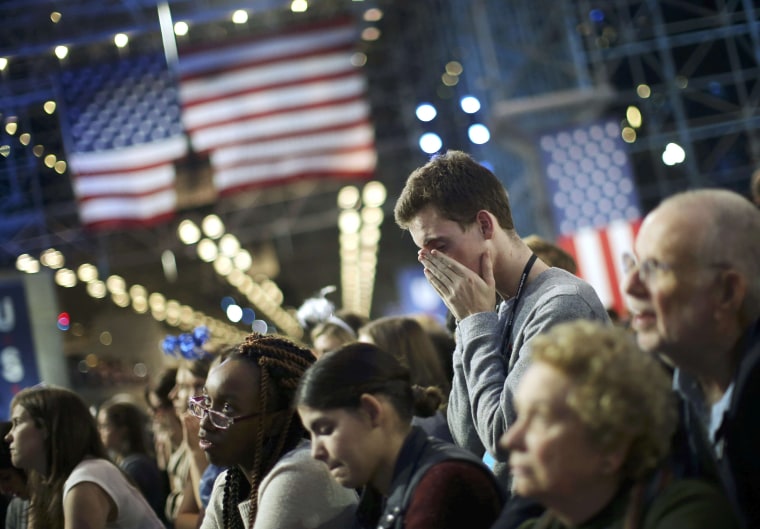America is getting stressed out — by politics.
More than half of Americans — 57 percent — say that the current political climate is a "very" or "somewhat" significant source of stress in their lives, according to a new survey released by the American Psychological Association (APA).
What's more, fully two-thirds (66 percent) say that the future of the nation is a significant source of stress.
The new survey, conducted by the Harris Poll on behalf of APA, is part of a larger poll about stress conducted by the organization since 2006. But 2016 was the first year that APA asked about the impact of politics, an addition prompted when psychologists who are part of the organization reported a spike in patient anxiety about the 2016 election. In January of this year, the APA followed up with additional questions, yielding the data released Wednesday.
But America’s great stress-out looks different when you focus on the partisan divides in the survey. Almost three-quarters of Democrats, 72 percent, say the current political climate is a “very” or “somewhat” significant source of stress. Among Republicans, that number is far lower, only 47 percent. Self-described independents are between the two at 55 percent.
What’s driving that political stress? If you have been paying any attention to the news out of Washington for the last month, you probably have a good idea.
Asked specifically about the outcome of the 2016 election, the partisan lines appeared even more sharply. Seventy-two percent of Democrats — but just 26 percent of Republicans — said that Trump's win was a cause of significant stress. (Those partisan differences also map along urban and rural lines; 62 percent of people living in cities but just 33 percent of rural dwellers say they were stressed by the election's outcome.)
The level of educational attainment also plays in a role in people’s political stress level, according to the survey. Less than 50 percent of those with a high school education or less say the current political climate and the election are “very” or “somewhat” significant sources of stress. For those who attended graduate school or got a post-graduate degree the figure is 75 percent for the current political climate and 69 percent for the 2016 election.
But concern about the future of America runs across party and educational lines. Majorities of both Republicans (59 percent) and Democrats (76 percent) say they are significantly worried about the nation in the long run. That’s also true for more than 60 percent of respondents across all levels of education.
Anxiety about politics may have contributed to an overall increase in Americans' stress levels in just the past few months, too. Between August 2016 and January 2017, Americans' overall average reported stress level rose from 4.8 to 5.1 on a 10-point scale, the survey found.

